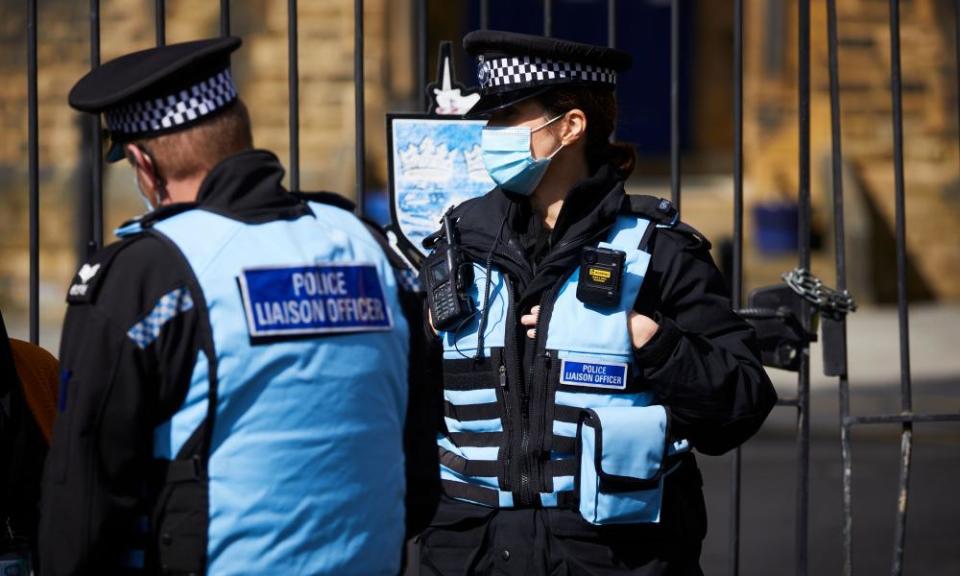Ofsted boss warns ‘militant’ activism in schools is a threat to education

The head of the schools watchdog in England has denounced a “militant” new brand of activism in school communities, which she warned was leading to confrontation within and outside the school gates and having a potentially limiting effect on education.
Ofsted’s chief inspector, Amanda Spielman, raised concerns not only about recent parent and community protests, which have led to children having to cross picket lines to get to school, but also a rise in pupil activism on issues such as racism, climate change and recent developments in the Middle East.
In some cases, she said, children and teachers were being subjected to abuse and even violence for being the wrong religion, race or ethnicity, and she said pupils should not be forced to support their peers’ campaigns for fear of being ostracised if they do not.
On teachers, Spielman said they should not be policed by “self-appointed moral guardians” who refuse to tolerate alternative viewpoints, or harried on social media to apologise for what they have said or change the way they teach.
“What I’m concerned about is not the activism that broadens debate and brings about long-term change, but the militant kind of activism that demands an immediate adherence to a position,” she told an education festival on Thursday. “We are seeing these confrontational approaches both outside and inside schools. It is affecting staff, parents and children and can have a limiting effect on education.”
Spielman avoided referring to any cases in detail, but in recent times there have protests outside schools over LGBT and relationships education as well as, at Batley grammar school in West Yorkshire, after an image of the prophet Muhammad was shown in class.
The recent Middle East conflict prompted a wave of pro-Palestine protests among pupils in schools and controversy over the staff response, with students being accused of antisemitism and one headteacher describing the Palestinian flag as a “call to arms”.
In addition there have been climate change protests by pupils and, inspired by the Black Lives Matter movement, pupils in England have protested about their experiences of racism, while students at Pimlico Academy in London staged a walkout complaining of discriminatory policies.
“This is a difficult problem for schools,” said Spielman. “So much effort goes into encouraging young people to understand and think about their democratic rights, which of course include the right to protest and to campaign for what they believe in. But education must come first. And no child should ever feel targeted or marginalised because intolerance has replaced reasoned debate.”
She told sector leaders attending a virtual Festival of Education: “It cannot be right for children to have to cross what amount to picket lines outside their school because one group’s religious beliefs – protected by law – sit uncomfortably with teaching about another group’s sexuality – also protected by law. It cannot be right that the curriculum can be filleted by pressure groups.
“And the militant defence of orthodoxies is not confined to adult protests, or to the protected characteristics. We are also seeing more pupil activism in schools, on many fronts. Some of this is about racism, or anti-racism; some is about climate change; some is about issues that are quite remote for most British children, such as the charged and complicated politics of the Middle East.
“But in some cases children and teachers are suffering abuse or even violence simply for being who they are: for being the wrong religion, or race or ethnicity. This is completely unacceptable.”

 Yahoo Movies
Yahoo Movies 